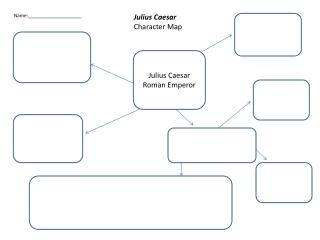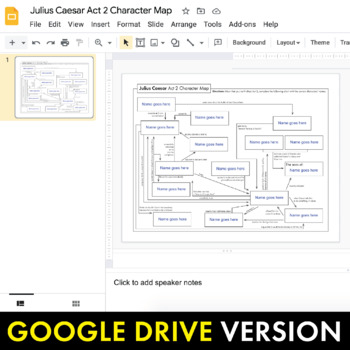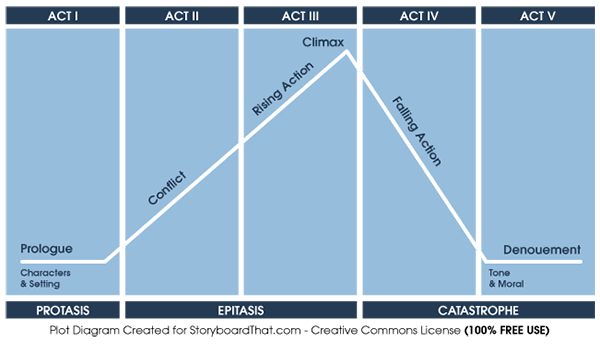Unraveling the Intricacies of Julius Caesar Act 2: A Character Map Exploration
Related Articles: Unraveling the Intricacies of Julius Caesar Act 2: A Character Map Exploration
Introduction
With enthusiasm, let’s navigate through the intriguing topic related to Unraveling the Intricacies of Julius Caesar Act 2: A Character Map Exploration. Let’s weave interesting information and offer fresh perspectives to the readers.
Table of Content
Unraveling the Intricacies of Julius Caesar Act 2: A Character Map Exploration

William Shakespeare’s "Julius Caesar" is a timeless masterpiece that delves into the complexities of power, ambition, and betrayal. Act 2, in particular, is pivotal, setting the stage for the dramatic events that unfold in the latter acts. Understanding the intricate relationships and motivations of the characters in Act 2 is crucial for fully appreciating the play’s themes and the tragic trajectory of its central figures.
This exploration aims to illuminate the key characters in Act 2, providing a comprehensive character map that reveals their motivations, relationships, and the pivotal roles they play in shaping the course of events.
Key Characters and their Roles in Act 2
1. Brutus:
- Motivation: Brutus is a Roman senator, known for his integrity and patriotism. He is deeply concerned about the potential tyranny of Caesar’s absolute power. While he deeply respects Caesar, he ultimately prioritizes the well-being of Rome, even if it means resorting to drastic measures.
-
Relationships:
- Caesar: Brutus is deeply conflicted about Caesar. He admires him but fears his ambition.
- Cassius: Cassius is Brutus’s close friend and confidant. He manipulates Brutus’s sense of duty to Rome, convincing him that Caesar must be eliminated.
- Portia: Brutus’s wife, Portia, is a strong and intelligent woman who is deeply worried about her husband’s emotional state. She is aware of his involvement in the conspiracy but respects his decision.
- Pivotal Role: Brutus is a central figure in the conspiracy against Caesar. He is the moral compass of the conspirators, driven by his belief in what is best for Rome.
2. Cassius:
- Motivation: Cassius is a cunning and ambitious politician who views Caesar’s rise to power as a threat to his own influence. He orchestrates the conspiracy, using his manipulative skills to convince Brutus to join him.
-
Relationships:
- Brutus: Cassius is Brutus’s close friend and confidant. He uses his knowledge of Brutus’s character to sway him towards the conspiracy.
- Caesar: Cassius despises Caesar and sees him as a tyrant who must be overthrown.
- Pivotal Role: Cassius is the mastermind behind the conspiracy against Caesar. He is driven by ambition and a desire for power.
3. Caesar:
- Motivation: Caesar is a powerful and ambitious leader who desires absolute control over Rome. He is confident in his own abilities and believes himself to be destined for greatness.
-
Relationships:
- Brutus: Caesar holds Brutus in high regard and considers him a friend. However, he is unaware of Brutus’s true intentions.
- Cassius: Caesar views Cassius with suspicion, recognizing his ambitious nature.
- Pivotal Role: Caesar is the target of the conspiracy. His ambition and perceived tyranny are the catalyst for the events that unfold in the play.
4. Portia:
- Motivation: Portia is deeply devoted to her husband, Brutus. She is concerned about his well-being and the weight of his secret burden.
-
Relationships:
- Brutus: Portia is fiercely loyal to Brutus and supports his decisions, even when she does not fully understand them.
- Pivotal Role: Portia represents the strength and resilience of women in a patriarchal society. Her unwavering support for Brutus highlights the complexities of their relationship.
5. Calpurnia:
- Motivation: Calpurnia is Caesar’s wife, deeply concerned about his safety and well-being. She is haunted by ominous dreams and fears for her husband’s life.
-
Relationships:
- Caesar: Calpurnia is fiercely devoted to Caesar and wants to protect him from harm.
- Pivotal Role: Calpurnia serves as a voice of reason and warning for Caesar. Her premonitions foreshadow the danger that awaits him.
6. Antony:
- Motivation: Antony is a loyal friend and supporter of Caesar. He is initially unaware of the conspiracy but later becomes a powerful force in avenging Caesar’s death.
-
Relationships:
- Caesar: Antony is deeply devoted to Caesar and vows to avenge his death.
- Brutus and Cassius: Antony initially appears to be on their side but ultimately turns against them.
- Pivotal Role: Antony plays a crucial role in turning public opinion against the conspirators. His powerful speech at Caesar’s funeral ignites the flames of rebellion.
7. Decius Brutus:
- Motivation: Decius Brutus is a member of the conspiracy and a skilled manipulator. He convinces Caesar to attend the Senate, ultimately leading to his assassination.
-
Relationships:
- Caesar: Decius Brutus is a member of Caesar’s inner circle and uses his position to gain access to him.
- Conspirators: Decius Brutus is a key player in the conspiracy, providing the final push for Caesar’s assassination.
- Pivotal Role: Decius Brutus plays a crucial role in the conspiracy by manipulating Caesar’s ego and convincing him to attend the Senate, where he is ultimately assassinated.
Understanding the Dynamics of Relationships
The character map of Act 2 reveals a complex tapestry of relationships that are both personal and political. The relationships between Brutus and Cassius, Brutus and Portia, and Caesar and Antony are particularly significant.
- Brutus and Cassius: Their relationship is characterized by mutual respect and trust, but it is also fraught with tension. Cassius manipulates Brutus’s sense of duty, convincing him that Caesar’s ambition poses a threat to Rome.
- Brutus and Portia: Their relationship is one of love and mutual respect, but also marked by a sense of distance. Portia understands her husband’s internal struggles but is unable to fully share his burden.
- Caesar and Antony: Their relationship is one of deep loyalty and friendship. Antony is fiercely devoted to Caesar and is willing to do anything to protect him.
The Importance of Act 2
Act 2 serves as the turning point in the play, setting the stage for the tragic events that unfold in the latter acts. It is in Act 2 that the conspiracy against Caesar is hatched, and the seeds of conflict are sown. The characters’ motivations, relationships, and actions in Act 2 directly influence the course of the play and the ultimate fate of its central figures.
FAQs about Julius Caesar Act 2 Character Map
1. Why is Brutus so torn about Caesar?
Brutus is torn because he admires Caesar’s achievements but fears his ambition. He believes that Caesar’s absolute power could lead to tyranny and endanger Rome.
2. What is Cassius’s ultimate goal in Act 2?
Cassius’s ultimate goal is to overthrow Caesar and seize power for himself. He uses his manipulative skills to convince Brutus to join the conspiracy.
3. How does Portia demonstrate her love and support for Brutus?
Portia demonstrates her love and support by being a source of strength for Brutus. She is aware of his involvement in the conspiracy and does everything she can to support him, even when she does not fully understand his actions.
4. Why does Calpurnia try to dissuade Caesar from going to the Senate?
Calpurnia tries to dissuade Caesar from going to the Senate because she is haunted by ominous dreams that foretell his death. She fears for his safety and wants to protect him from harm.
5. What is the significance of Antony’s speech at Caesar’s funeral?
Antony’s speech at Caesar’s funeral is significant because it turns public opinion against the conspirators. His powerful words ignite the flames of rebellion and lead to the downfall of Brutus and Cassius.
Tips for Understanding Julius Caesar Act 2
- Pay attention to the characters’ dialogue: The characters’ words reveal their motivations, beliefs, and relationships.
- Consider the historical context: The play is set in ancient Rome during a time of political turmoil. Understanding the historical context can provide valuable insights into the characters’ actions and motivations.
- Analyze the themes: The play explores themes of power, ambition, betrayal, and the nature of justice. Identifying these themes can help you to understand the deeper meaning of the play.
- Focus on the relationships between the characters: The relationships between the characters are complex and often fraught with tension. Understanding these relationships is essential for appreciating the play’s nuances.
Conclusion
Act 2 of "Julius Caesar" is a pivotal moment in the play, setting the stage for the tragic events that unfold in the latter acts. By understanding the characters’ motivations, relationships, and the pivotal roles they play in shaping the course of events, we can gain a deeper appreciation for the play’s themes and the complexities of human nature. The character map provides a valuable tool for navigating the intricate world of Shakespeare’s masterpiece.







Closure
Thus, we hope this article has provided valuable insights into Unraveling the Intricacies of Julius Caesar Act 2: A Character Map Exploration. We thank you for taking the time to read this article. See you in our next article!
